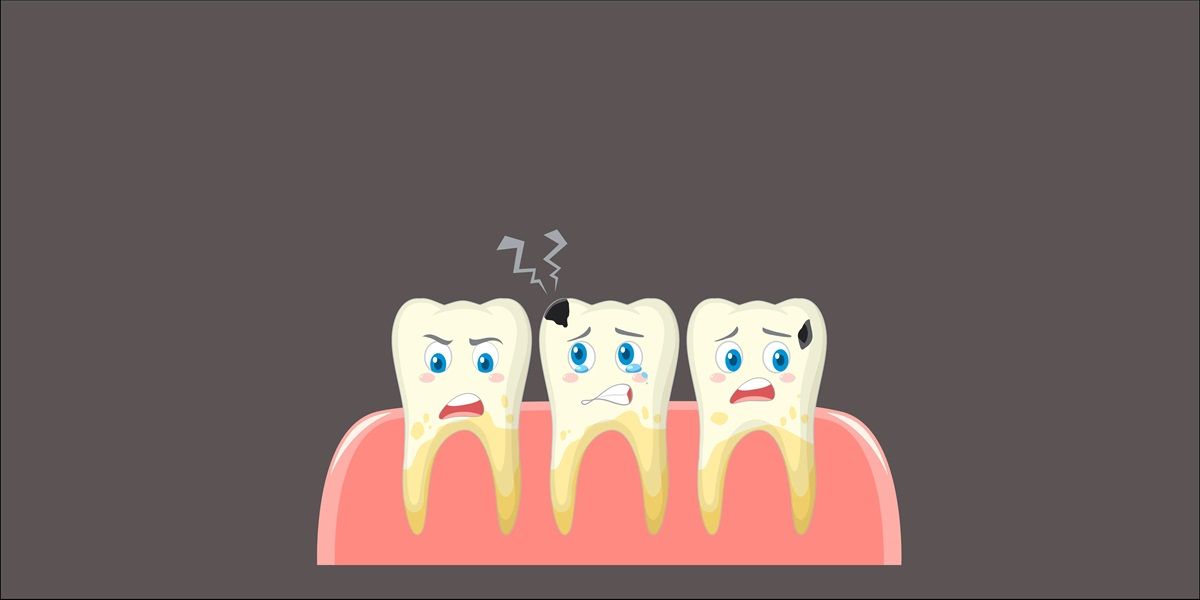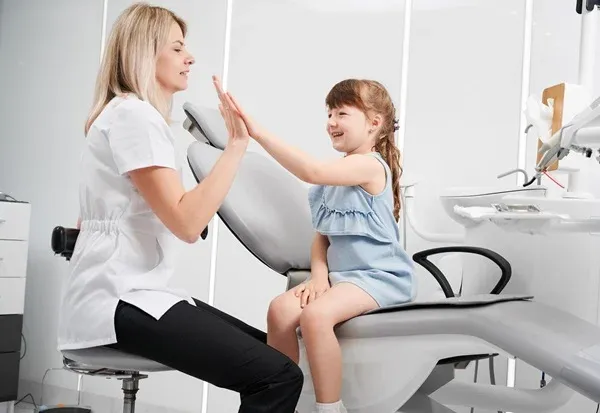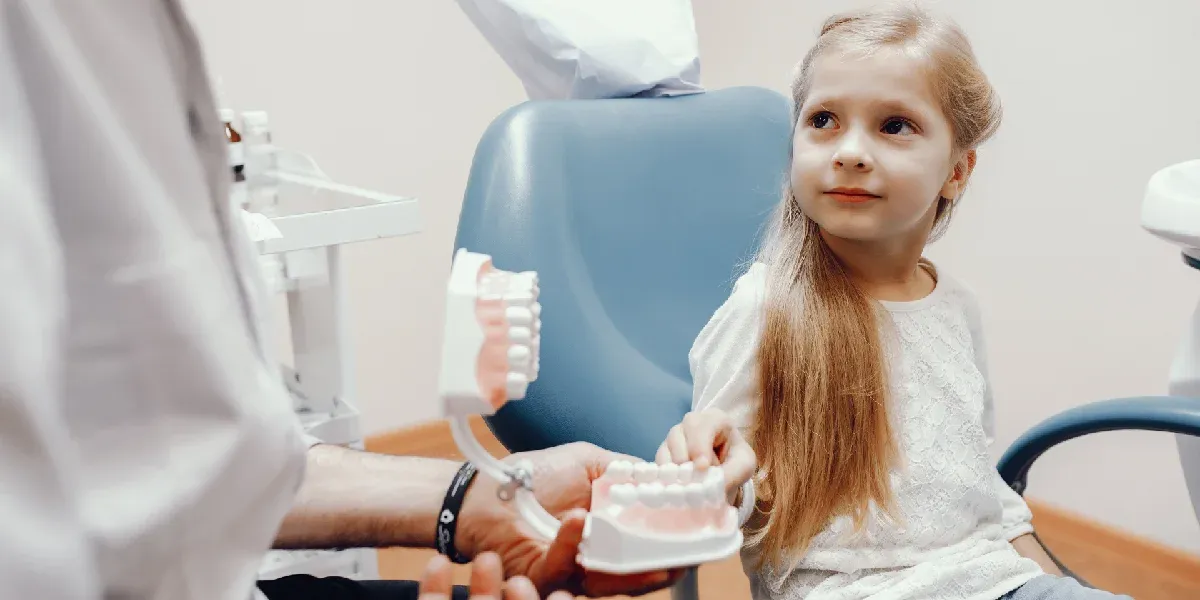
Preventing Tooth Decay in Kids
Strategies for Cavity Prevention
As a parent, there's nothing more heartwarming than seeing your child smile. But behind those bright, little teeth lies the need for proper care to ensure that smile stays healthy. One of the most common dental concerns among children is tooth decay, also known as cavities.
Tooth decay can start early, even before the baby's teeth fall out, and if left unchecked, it can cause discomfort, affect your child's ability to eat and speak, and may even lead to more serious dental issues.
Thankfully, preventing cavities in kids doesn't have to be complicated. With a few simple strategies and early dental visits, you can help your child enjoy solid and healthy teeth for life.
In this blog, we'll guide you through some easy, practical tips to prevent tooth decay and explain why taking your child to the dentist at a young age is one of the best steps you can take to protect their oral health.
Why Kids' Oral Health is Crucial?
Good oral health starts much earlier than many people think. From the moment your baby's first tooth appears, that tooth is at risk for cavities. The key to protecting your child's teeth is to build good habits early and make sure they get the dental care they need.
The Importance of Baby Teeth
You might wonder if baby teeth are only temporary, why does it matter if they get cavities? The truth is that baby teeth play a big role in your child's overall development. They help your child chew food correctly, speak clearly, and hold space for their adult teeth to come in.
If baby teeth are damaged by decay, it can lead to problems like pain, infections, or even difficulty eating, which can affect your child's growth.

The Impact of Tooth Decay
Tooth decay in kids doesn't just stop at cavities. If left untreated, it can lead to more serious oral health problems. Severe decay can result in the need for fillings, crowns, or even tooth extractions, which are not only uncomfortable but can also be a source of anxiety for young children.
By preventing cavities now, you're setting your child up for fewer dental issues in the future.
Strategies to Prevent Tooth Decay
Preventing tooth decay in kids doesn't have to be overwhelming. By adopting a few simple strategies, you can significantly reduce the risk of cavities and ensure your child enjoys a lifetime of healthy teeth.
1. Set a Routine
Establish a daily routine for brushing and flossing. Make it a non-negotiable part of their morning and bedtime rituals to reinforce the importance of oral care.
2. Choose Healthy Snacks
Opt for tooth-friendly snacks like fruits, vegetables, cheese, and nuts. These foods not only nourish your child but also support their dental health.
3. Limit Sugary Drinks
Encourage your child to drink water instead of sugary beverages. If they do enjoy juice, dilute it with water to reduce sugar intake and prevent cavities.
4. Be a Role Model
Show your child that you prioritize your own dental hygiene. Brush and floss together to create a sense of teamwork and make it a fun family activity.
5. Educate About Oral Health
Talk to your child about why dental care is essential. Using age-appropriate books or videos can make learning about oral health engaging and informative.
Establishing Good Oral Hygiene Habits
Good oral hygiene starts at home, and it's never too early to begin. Teaching your child to brush and floss regularly will help prevent cavities and set them up for a lifetime of healthy smiles.
- Brushing
Make sure your child brushes their teeth twice daily, using fluoride toothpaste. For younger kids, parents should supervise and help them brush to ensure all teeth are properly cleaned. Remember to use a soft-bristled toothbrush and change it every 3–4 months.
- Flossing
As soon as your child's teeth touch, it's time to start flossing. Flossing helps remove food particles and plaque between teeth, areas that brushing can't reach. Make it a fun part of their routine using colorful or flavored floss picks!
Smart Snacking Habits
What your child eats has a big impact on their oral health. Sugary snacks and drinks fuel the bacteria that cause cavities, so offering tooth-friendly alternatives is important.
- Limit Sugary Foods
Candy, cookies, and sugary drinks should be occasional treats, not everyday snacks. These foods can stick to teeth, creating the perfect environment for plaque to form.
- Healthy Snacks to Choose
Instead of sugary snacks, offer your child options that promote dental health, such as crunchy fruits and vegetables like apples and carrots or dairy products like cheese and yogurt. These not only satisfy hunger but also help clean teeth and strengthen enamel.
- Water is Best
Encourage your child to drink water, especially after meals. Water helps wash away food particles and keeps their mouth hydrated, aiding the fight against tooth decay.
Fluoride and Dental Sealants
Fluoride is a superhero when it comes to cavity prevention! This naturally occurring mineral strengthens tooth enamel, making it more decay-resistant. Most public water supplies contain fluoride, but if yours doesn't, your dentist can provide fluoride treatments during check-ups.
- Fluoride Toothpaste
Using fluoride toothpaste is essential for your child's daily oral care. A small amount—about the size of a pea—is enough for effective brushing.
- Dental Sealants
In addition to fluoride, dental sealants are a fantastic way to protect your child's teeth. Sealants are thin, protective coatings applied to the chewing surfaces of back teeth (molars). They act as a barrier against plaque and food particles, significantly reducing the risk of cavities in those hard-to-reach areas.
Fluoride treatments and sealants provide powerful protection, ensuring your child's teeth stay healthy and cavity-free!
Fun Ways to Encourage Good Dental Habits
Making oral care fun is a great way to engage your child in their dental hygiene routine. Kids who enjoy brushing and flossing are likelier to stick with it!
- Colorful Tools
Let your child pick out a toothbrush in their favorite color or featuring their favorite cartoon character. A fun, vibrant toothbrush can make brushing feel less of a chore and more exciting!
- Interactive Games and Apps
Many apps and online games are designed to teach kids about oral hygiene. These interactive tools can encourage children to brush for the recommended two minutes while making it feel like a game rather than a task.
- Reward Systems
Consider setting up a sticker chart or a small rewards system for consistent brushing and flossing. Celebrate milestones, like brushing twice a day for a week, to motivate your child to keep up their great habits!

Maintaining Healthy Smiles Through Regular Visits
Regular dental check-ups are essential for maintaining your child's oral health and preventing cavities. These visits allow the dentist to monitor your child's teeth and gums, thoroughly cleaning to remove plaque and tartar that brushing might miss.
Early Detection
Routine appointments enable early detection of potential problems like cavities or misalignment, ensuring any issues are addressed before they escalate. The earlier a problem is caught, the easier it is to treat.
Educational Opportunities
Dental visits are also a great chance for your child to learn about proper oral care. Dentists can teach them about brushing, flossing, and the importance of a balanced diet, reinforcing the healthy habits you're working to instill at home.
A Comfortable Experience
At our clinic, we strive to make dental visits enjoyable for children. A friendly environment helps reduce anxiety and fosters a positive attitude toward oral care. When kids feel comfortable at the dentist, they're more likely to continue regular visits as they grow.
Contact your kids' dentist in Stockton, Dr. Sajjad Rizvi, D.D.S. at Happy Kids Dental, to know more about how to prevent tooth decay in kids.
Resource:
The Ultimate Guide to Pediatric Dentistry: Building a Strong Foundation for Your Child’s Oral Health
*This media/content or any other on this website does not prescribe, recommend, or prevent any treatment or procedure. Therefore, we highly recommend that you get the advice of a qualified dentist or other medical practitioners regarding your specific dental condition*
Subscribe To Our Newsletter
Get Updates And Learn From The Best


